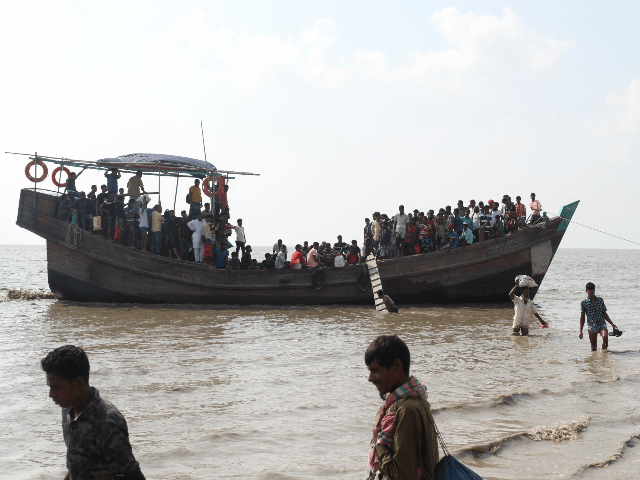The U.N. refugee agency published a report for World Refugee Day (June 20) that found a record 71 million people around the world forced from their homes by war and persecution.
An estimated 26 million of those people were driven out of their home countries entirely, while the rest were “internally displaced” or are currently in search of asylum.
The U.N. noted the true total is actually much higher because many displaced persons have not applied for asylum or taken other actions that would get them on the books. An estimated 4 million displaced Venezuelans were cited as an example of the undercount.
The report offered some remarkable statistics, including the calculation that an average of 37,000 people were forced from their homes in 2018, and that nearly one percent of the total human population has become displaced. Almost half of the refugees were children.
Amazingly, two-thirds of that staggering refugee total came from five countries: Afghanistan, Myanmar, Somalia, South Sudan, and Syria. If unofficial estimates are correct, Venezuela may have become the leading source of refugees displaced to other countries.
U.N. High Commissioner for Refugees Filippo Grandi criticized wealthy Western countries for not sheltering enough refugees, although clearly the cost and logistical difficulty of transporting huge numbers of people across vast distances makes it unsurprising most of them end up camped within or near the five countries from which the bulk of the refugees originate, as with the vast number of people fleeing Syria and landing in Turkish camps.
“When you say Europe has a refugee emergency or the United States or Australia — No. Most of the refugees are in fact in the countries next to where the war is and, unfortunately, that means in mostly in poor countries or in middle-income countries. That is where the crisis is. That is where we need to focus,” Grandi told Voice of America News.
“These appalling figures are the result of major powers’ failure to stop a series of crises – including those in Syria, South Sudan, Afghanistan, Myanmar, and Venezuela – running out of control,” charged Richard Gowan of the International Crisis Group.
This raises the question of exactly what “major powers” were supposed to do about the civil war in Syria or the socialist disaster in Venezuela, especially with malevolent states like China, Russia, and Iran supporting the malefactors.
The U.N. noted 330,000 refugees have been forced from their homes in Syria in just the past month, driven by the Russian- and Iranian-supported Syrian government’s bloody push against the last rebel holdout in Idlib province. The U.N. seems to have little appetite for sending a massive international force into Afghanistan to wipe out the Taliban and stabilize the government.
It is an unfortunate aspect of modern internationalism that only the worst nation-states are granted any real respect for their sovereign borders. Somehow the civilized world is perpetually on the hook for healing the terrible damage dictators like Syria’s Bashar Assad or Venezuela’s Nicolás Maduro inflict upon their citizens, and obliged to take in whatever percentage of their populations the strongmen decide they would rather do without. It is not a system that pressures the strongmen into acting more responsibly or humanely.

COMMENTS
Please let us know if you're having issues with commenting.